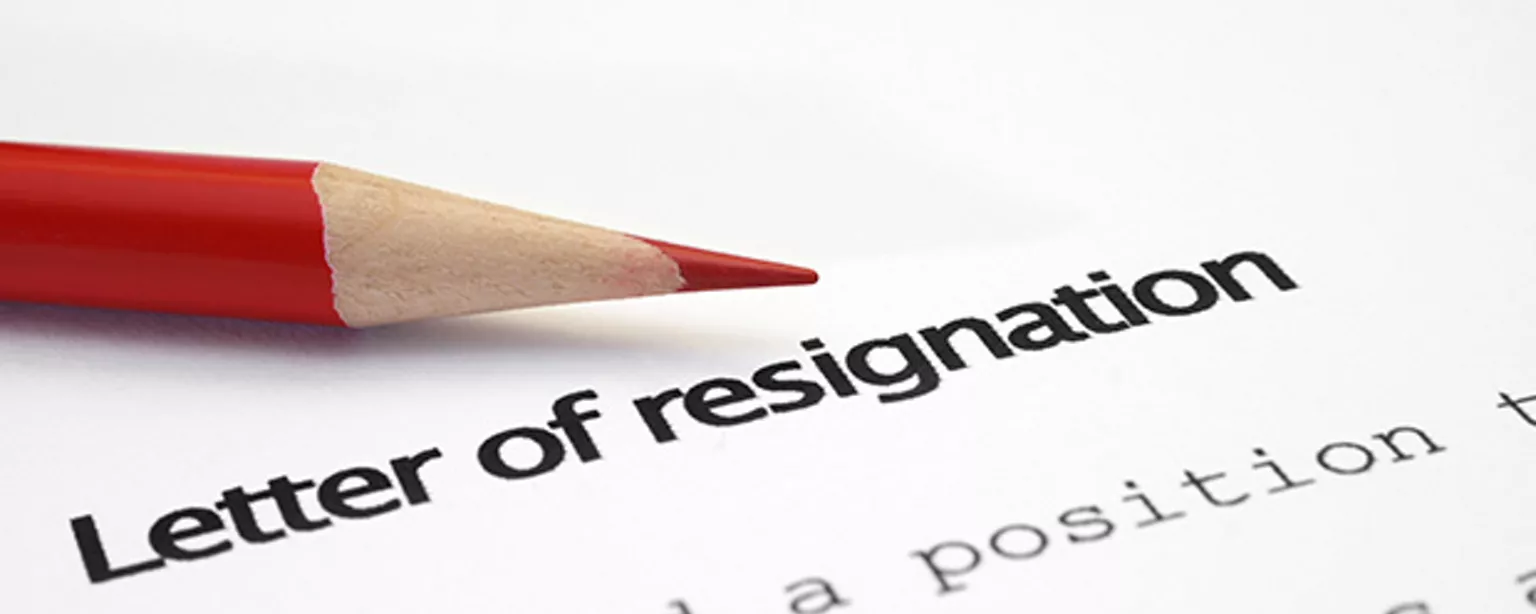First impressions count but final impressions can have a lasting impact too, and your resignation letter needs to uphold your professional reputation and personal branding.
Keep your resignation letter simple
A resignation letter should be to the point and straightforward. It only needs to comprise a few paragraphs stating that you are resigning, the date of your last day and thanking your employer.
Keep your resignation letter simple and it’s hard to go wrong. Even if your experiences with your current employer haven’t been positive, resist the temptation to point out everything you believe is wrong with the company or to name difficult colleagues. Your resignation letter will be the final point of written contact with your manager – and it may be held on file indefinitely. So stick to the basics. That way, if your current manager refers to your letter when asked to provide a reference in the future, your professionalism will shine through.
Offer to lend a hand
It’s likely you are the person who is best-placed to help train your replacement, and noting in your letter that you are happy to lend a hand bringing the new recruit up to speed can mean a great deal to your manager. It demonstrates that you are genuinely committed to the continued success of your team and the company, and this helps to create a strong final impression.
If a replacement is not found before you leave, consider noting in your letter that you are available to contact even after you have moved on from the company.
Express your thanks
Thanking your manager for the time spent working for the company isn’t just a matter of courtesy, it also strengthens your professional reputation. All companies invest time in their staff, and regardless of whether it was experience gained on the job or attendance at formal training seminars, it’s likely your skillset has expanded during your time with the organisation.
There’s no need to gush over your thanks. A brief paragraph expressing your gratitude for the experiences gained in the role and the opportunities provided will be sufficient to demonstrate your professional courtesy.
It’s not necessary to explain your resignation
Before handing over your resignation letter, set a date to have a one-on-one meeting with your manager. This is your opportunity to explain why you are resigning – though keep the conversation positive. There is nothing to be gained from elaborating on the failings of the company, your manager or co-workers.
However, when it comes to your resignation letter, it’s not necessary to explain why you are leaving or which company you will be working for next. You may choose to share this information with your team but it’s not essential to put it in writing.
Maintain a positive tone
You may be counting down the days to leave your job but don’t let that show in your resignation letter. Maintain a positive tone and diplomatic wording. You never know what the future holds, and you may want to work for the company again in the future, or you could find yourself applying for a job where your current manager is part of the hiring team. It can be a small world in business, and your resignation letter shouldn’t burn bridges for the future.
If you’re unsure about the tone of your letter, read it to a trusted friend to get a second opinion, and edit the wording if necessary before forwarding it to your manager.
Writing a professional resignation letter will be one of your final tasks in your old job, and done properly you can look forward to your new role confident that you have left a positive final impression with your past employer.








 沪公网安备31010402334337号
沪公网安备31010402334337号